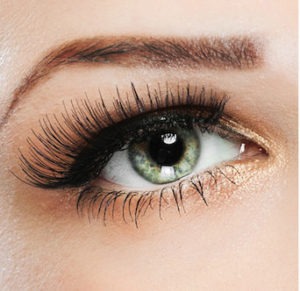 With the holiday season quickly approaching, many individuals are considering eyelid surgery to refresh their appearance before gatherings with family and friends. Known for its rejuvenating effects, eyelid surgery, or blepharoplasty, can help address issues such as droopy eyelids or under-eye bags, providing a more youthful look. Consulting with a skilled oculoplastic surgeon is an essential step in planning for successful surgery and recovery. As you prepare for the festivities, understanding the recovery process can ensure you look and feel your best during this special time of year. Khan Eyelid and Facial Aesthetics, led by oculoplastic and reconstructive surgeon Dr. Tanya Khan, provides eyelid surgery to patients in Plano, Dallas, Austin, Texas, and surrounding locations.
With the holiday season quickly approaching, many individuals are considering eyelid surgery to refresh their appearance before gatherings with family and friends. Known for its rejuvenating effects, eyelid surgery, or blepharoplasty, can help address issues such as droopy eyelids or under-eye bags, providing a more youthful look. Consulting with a skilled oculoplastic surgeon is an essential step in planning for successful surgery and recovery. As you prepare for the festivities, understanding the recovery process can ensure you look and feel your best during this special time of year. Khan Eyelid and Facial Aesthetics, led by oculoplastic and reconstructive surgeon Dr. Tanya Khan, provides eyelid surgery to patients in Plano, Dallas, Austin, Texas, and surrounding locations.
Understanding Eyelid Surgery and Its Benefits
Eyelid surgery, often called blepharoplasty, is a popular cosmetic procedure designed to rejuvenate the eye area. By removing excess skin, muscle, and sometimes fat, this surgery can significantly improve the appearance of droopy eyelids or under-eye bags. The result is a more youthful, alert, and refreshed look that can boost self-confidence. Additionally, in cases where excess skin obstructs vision, blepharoplasty can enhance eyesight, making it a functional as well as an aesthetic improvement. Many people choose this procedure to achieve a subtle but noticeable enhancement in their overall facial appearance. Whether motivated by cosmetic desires or functional needs, eyelid surgery offers a range of benefits that make it a compelling option for those looking to enhance their look.
Timing Your Surgery for Optimal Recovery
When planning eyelid surgery around the holiday season, it’s essential to consider the recovery timeline. Aim to schedule your procedure at least six weeks before any major events to allow enough time for initial healing. This timeframe helps ensure that swelling and bruising have sufficiently subsided, allowing you to look your best. Early consultation with your oculoplastic surgeon will enable you to create a personalized timeline tailored to your needs and holiday plans. This proactive approach allows for adjustments in case of any unforeseen delays in the healing process. Additionally, coordinating your surgery date to avoid high-stress periods can contribute to a smoother recovery. Planning ahead not only optimizes your physical recovery but also reduces any anxiety associated with the healing period, ensuring you can enjoy the holiday festivities with confidence.
The First Few Days Post-Surgery
The first few days after eyelid surgery are crucial for your recovery journey. Expect some discomfort, swelling, and bruising, which are normal side effects. To manage these symptoms, use prescribed medications and apply cold compresses as recommended. Elevate your head while resting to help reduce swelling and avoid any strenuous activities that could strain your eyes. It’s vital to follow the detailed post-operative care instructions given by your oculoplastic surgeon to promote optimal healing. Keeping your head elevated and staying well-hydrated can also aid in the recovery process. Adhering to these guidelines helps ensure that your body heals properly and minimizes the risk of complications.
Managing Swelling and Bruising
Swelling and bruising are common side effects of eyelid surgery but usually diminish within a couple of weeks. Applying cold compresses regularly during the first 48 hours can help reduce swelling. Staying well-hydrated and consuming a balanced diet rich in vitamins and minerals can further assist in reducing inflammation. Your oculoplastic surgeon might recommend specific ointments or eye drops to facilitate healing and enhance comfort. It’s crucial to follow these recommendations diligently to achieve the best possible outcomes. Although it might be tempting to scrutinize your appearance for immediate results, patience is essential as the full recovery process can take several weeks. Ensuring you get adequate rest and sleep will also support your body’s natural healing processes. Reducing salt intake can minimize water retention, which can help decrease swelling. Lastly, avoid exposing your healing eyes to direct sunlight; wearing sunglasses can offer protection and aid in the recovery process.
Activity Restrictions and Resuming Daily Life
During the recovery phase, adhering to activity restrictions is essential to avoid complications. Patients should refrain from heavy lifting, vigorous exercise, and bending over for at least two weeks following eyelid surgery. Such activities can increase blood flow to the eye area and exacerbate swelling or bruising. Light walking is encouraged as it promotes circulation without putting undue strain on your healing eyes. It’s also advisable to avoid activities that may cause eye strain, such as reading for prolonged periods or spending excessive time on screens.
When it comes to daily routines, take extra care when washing your face and avoid getting the incision sites wet until your surgeon advises otherwise. Keeping your head elevated even while sleeping can further assist in reducing swelling.
If you wear contact lenses, you will need to switch to glasses until your surgeon gives you the go-ahead to resume wearing contacts. Similarly, wearing sunglasses when outdoors can protect your eyes from harmful UV rays and help reduce sensitivity to light during the healing process.
Listen to your body and give it the rest it needs. Fatigue is common after surgery, and ensuring you get enough sleep can significantly aid in the healing process. While it may be tempting to return to your usual pace quickly, rushing the recovery process can lead to setbacks.
As you gradually reintroduce your regular activities, closely follow your surgeon’s advice and recommendations. Monitoring your body’s responses to increased activity will help you identify when it’s safe to proceed and when you might need to slow down.
Skincare and Makeup Tips During Recovery
During recovery, it’s crucial to adopt a gentle skincare routine to protect the delicate area around the eyes. Start by cleansing your face with a mild, non-irritating cleanser, avoiding the incision sites. Moisturize the surrounding skin using a fragrance-free, hypoallergenic moisturizer to prevent dryness. Sunscreen is also essential, even if you’re indoors, to protect healing skin from UV rays.
Makeup should be avoided near the incision areas until your surgeon gives you the go-ahead, typically around two weeks post-surgery. Once permitted, choose makeup products that are hypoallergenic and easy to remove to minimize irritation. Avoid waterproof formulas that require vigorous scrubbing to remove.
When applying makeup, be gentle and use clean brushes or applicators to prevent infection. Consider using mineral makeup, which is generally less irritating to sensitive skin. Opt for lightweight concealers to cover any residual bruising or discoloration, and be sure to remove all makeup thoroughly at the end of the day.
For those who wear contact lenses, it’s best to stick to glasses until fully healed to avoid putting unnecessary strain on the eyes. If dryness or irritation occurs, consult your surgeon before using any new skincare products or eye drops.
Throughout your recovery, stay hydrated and maintain a balanced diet rich in vitamins and minerals to support skin healing. By following these skincare and makeup tips, you’ll help ensure a smoother recovery process while protecting your delicate eye area.
Monitoring Your Progress and When to Contact Your Surgeon
Tracking your recovery is essential to ensure everything proceeds as expected. Regular follow-up appointments with your oculoplastic surgeon will allow them to monitor your healing and address any issues promptly. It’s normal to experience some swelling and bruising, but these should gradually improve. Keep a close eye on your incision sites for signs of infection, such as increased redness, warmth, or unusual discharge.
If you notice severe pain, sudden changes in vision, or any symptoms that seem out of the ordinary, contact your surgeon immediately. Early intervention can prevent complications and support a smoother recovery. Make a note of any questions or concerns you have and discuss them during your follow-up visits. Maintaining open communication with your healthcare provider ensures you receive the guidance and reassurance needed throughout the healing process.
Preparing for Holiday Gatherings
As the holiday season approaches and your recovery progresses, it’s time to plan for social gatherings with confidence. Select outfits that highlight your rejuvenated appearance, paying attention to colors and styles that complement your refreshed look. Hairstyles that draw attention away from any residual swelling or bruising can also be beneficial.
Accessories like statement necklaces or earrings can shift focus and add a festive touch to your ensemble. If makeup is part of your routine, use lightweight, hypoallergenic products to enhance your features subtly. Opt for mineral makeup or lightweight concealers to cover any lingering discoloration, and remember to remove all makeup gently at the end of the day to avoid irritation.
Maintaining a positive mindset is equally important. Engage in stress-reducing activities like gentle yoga, meditation, or deep-breathing exercises to keep your stress levels in check. Staying hydrated and eating a balanced diet rich in vitamins and minerals will not only aid in your physical recovery but also improve your overall well-being.
When it comes to social interactions, don’t hesitate to share your experience with eyelid surgery if you’re comfortable. Often, openness can reduce any anxiety about your appearance and allow you to fully enjoy the company of family and friends. Prepare responses in advance for any questions you might receive, so you feel at ease during conversations.
By planning ahead and following your recovery plan, you can step into holiday festivities feeling rejuvenated and confident. Embrace the opportunity to celebrate with loved ones, knowing you’ve taken the steps to look and feel your best during this special time of year.
CONTACT Khan Eyelid and Facial Aesthetics AND OCULOPLASTIC & RECONSTRUCTIVE SURGEON DR. TANYA KHAN TODAY TO SCHEDULE AN APPOINTMENT
For more information about procedures and treatments at Khan Eyelid and Facial Aesthetics by Ophthalmic surgeon Dr. Tanya Khan. Click here to contact us.
Taking patients from in and around Dallas, Plano, Fort Worth, Grapevine, Garland, Mesquite, Carrollton, Irving, Frisco, Texas and more.









Schedule a Consultation: 972-EYE-LIDS (393-5437)